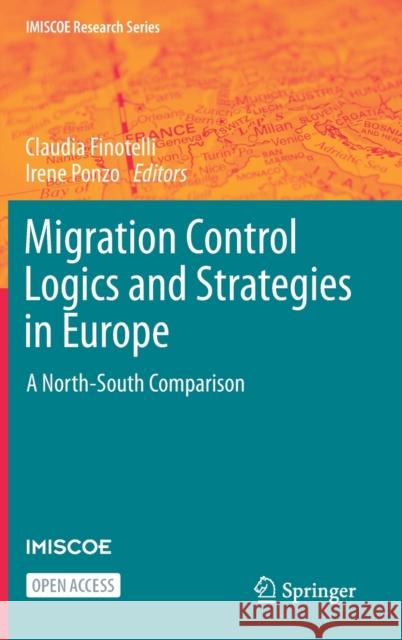Migration Control Logics and Strategies in Europe: A North-South Comparison » książka
Migration Control Logics and Strategies in Europe: A North-South Comparison
ISBN-13: 9783031260018 / Angielski
Migration Control Logics and Strategies in Europe: A North-South Comparison
ISBN-13: 9783031260018 / Angielski
(netto: 191,66 VAT: 5%)
Najniższa cena z 30 dni: 192,74
ok. 22 dni roboczych.
Darmowa dostawa!
Building upon the concept of migration regime, this open access book brings together the works of scholars who have investigated logics and routines of action in the field of immigration control within a single and innovative theoretical framework. The chapters cover a wide range of policy domains, from visa policy to the externalisation of controls, labour migration to asylum, internal controls towards irregular migration to restrictions for intra-EU mobility. By unravelling organisational strategies and practices across Europe, the book does not only contribute to dismantling the very idea of the European North-South divide in migration but also shows how Europe really works in the field of migration in times of deep economic, asylum and health crises. In this perspective, the book questions the widespread understanding of migration control outcomes as simply the result of more or less effective state policies without considering the embeddedness of the national policy goals and strategies in the dynamic interplay of different economies, institutional cultures and geopolitical positions.
Building upon the concept of migration regime, this open access book brings together the works of scholars who have investigated logics and routines of action in the field of immigration control within a single and innovative theoretical framework. The chapters cover a wide range of policy domains, from visa policy to the externalisation of controls, labour migration to asylum, internal controls towards irregular migration to restrictions for intra-EU mobility. By unravelling organisational strategies and practices across Europe, the book does not only contribute to dismantling the very idea of the European North-South divide in migration but also shows how Europe really works in the field of migration in times of deep economic, asylum and health crises. In this perspective, the book questions the widespread understanding of migration control outcomes as simply the result of more or less effective state policies without considering the embeddedness of the national policy goals and strategies in the dynamic interplay of different economies, institutional cultures and geopolitical positions.











